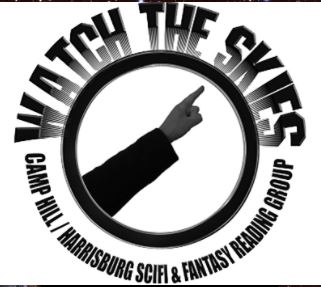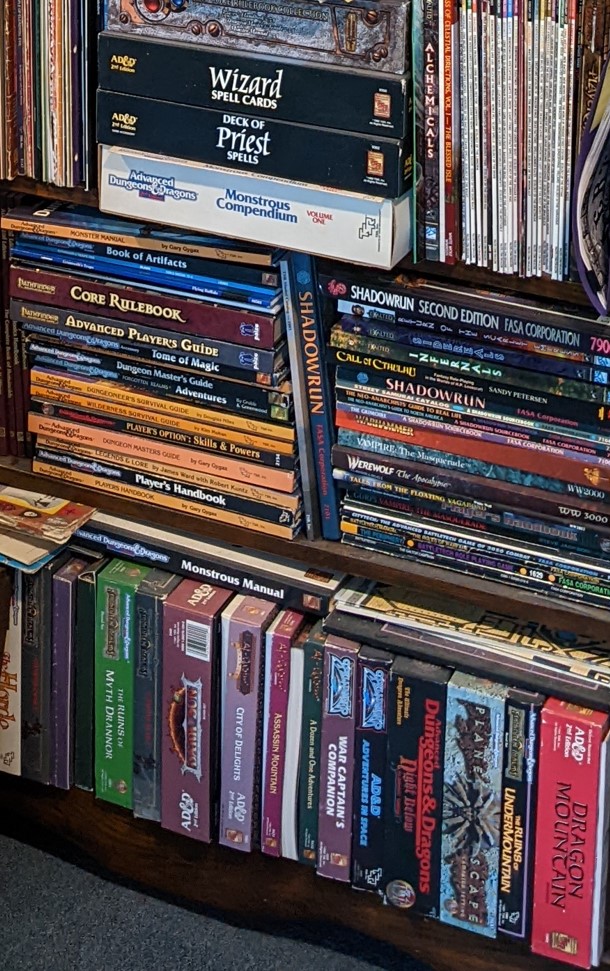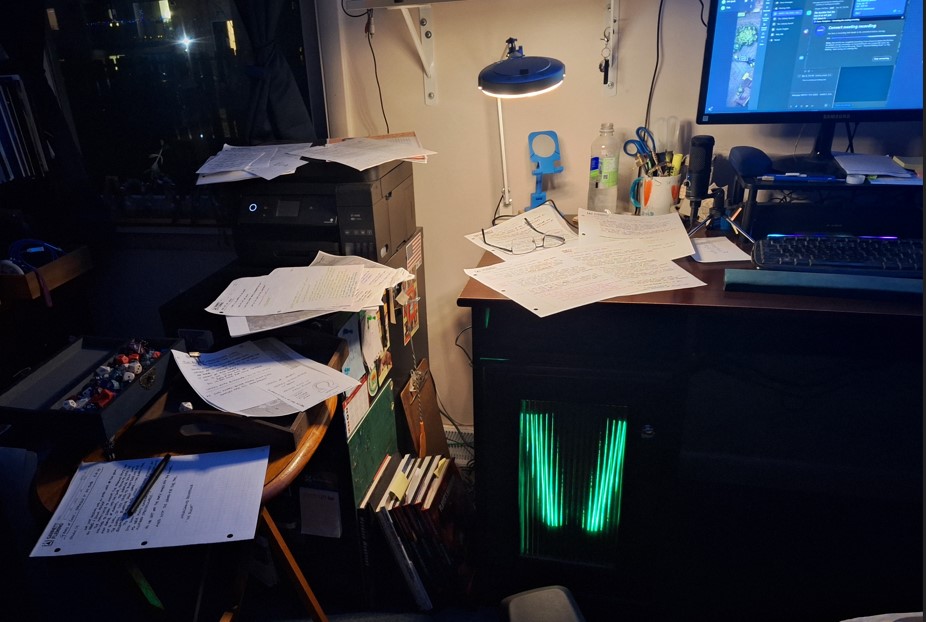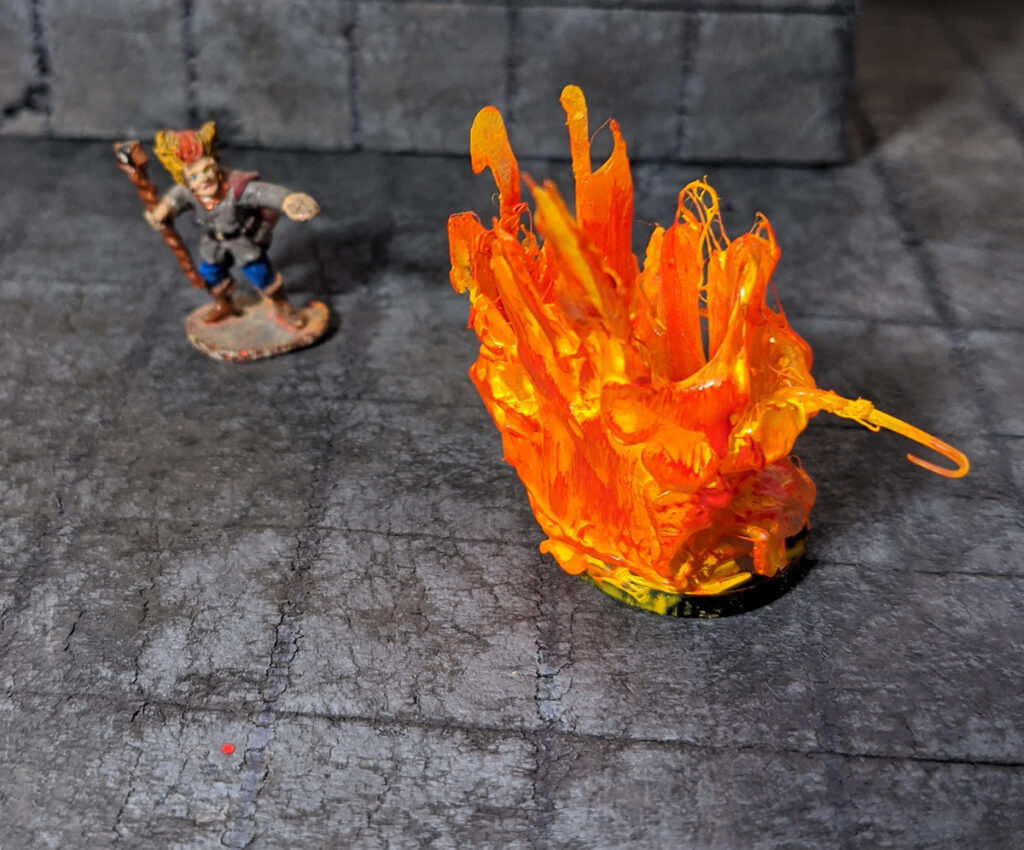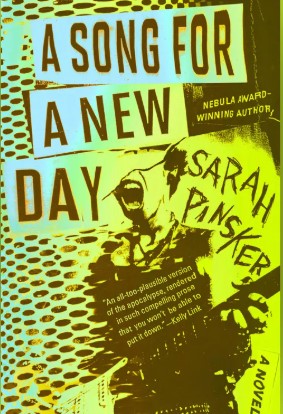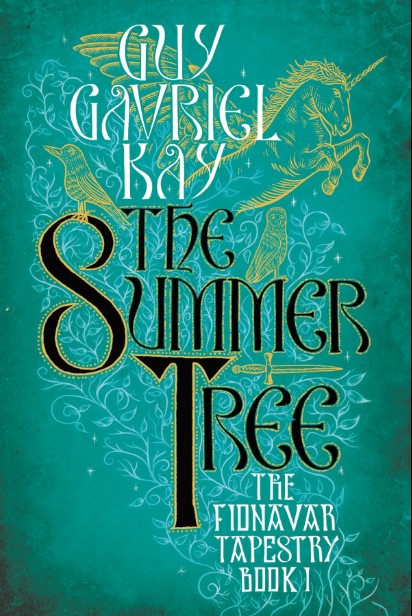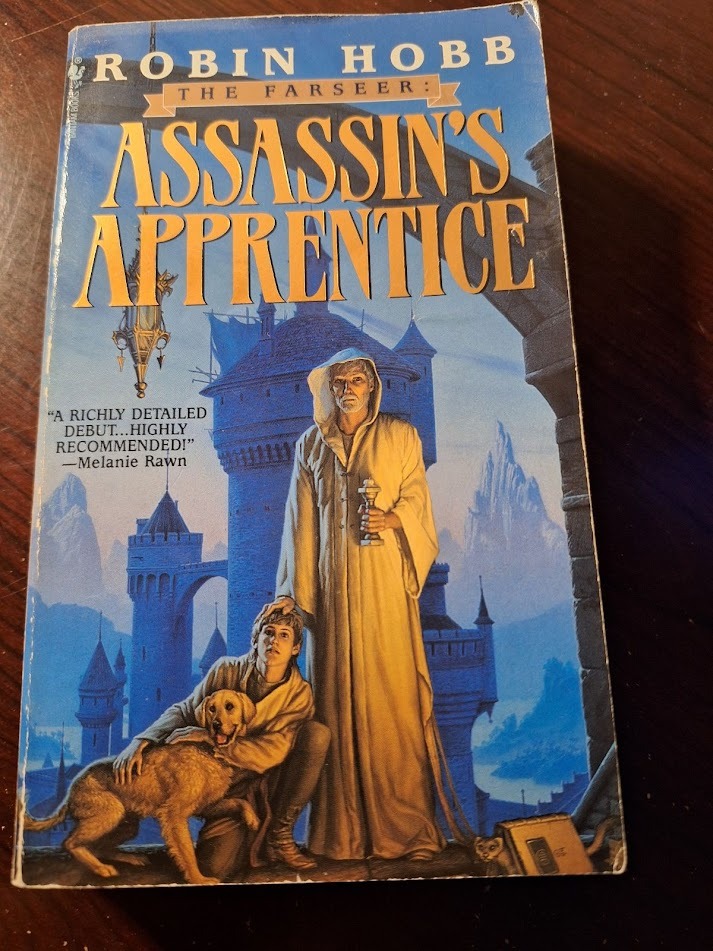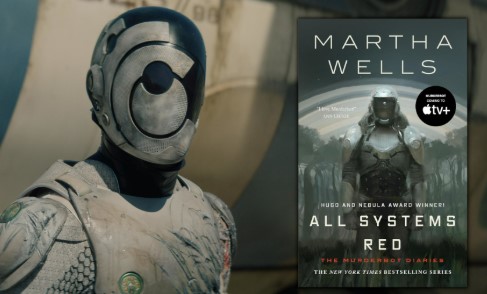Selecting books, recruiting members, and achieving longevity; what goes into a successful book discussion group?
I suspect I was asked to be part of this panel because of my long term connection to Watch the Skies and our 25+ year history as a club. The pre-convention notes were a little thin on this one and I was a little concerned. Turns out there was no need to worry. It was a small panel crowd and lots of lively bits were covered! Here are the notes I had going into the panel:
IF you read my bio at all, part of that list is a group called Watch The Skies. That group started back around the year 2000 as a science fiction and fantasy reading group. We are still going strong here in 2025. We have a lot going on, and a lot of aspects of the group that are only tangentially related.
First – the books (and how to pick them).
We have everyone write a secret selection they want to read on a slip of paper, then drop it into a small bag. Somebody who didn’t add a slip of paper in, reaches in and picks the book for next month. We do have some rules… we try to stay within science fiction / fantasy as a category. Some have been more loose than others. It needs to be in print currently. It should have been in print long enough to reach the paperback stage – we’re not out to bankrupt anyone.
Track your books. Keep that list someplace accessible. Our group has more than 225 titles we’ve discussed over the years.
Next – the social contract.
We’re here to have a chat about the book we read. We’re not here to crush anyone’s opinions, treat them badly or ostracize anyone. It’s meant to be a friendly, social thing. IF somebody picked a totally awful book, discuss the book, not their taste in books. Understand that not every book is for every person, and that’s what makes this fun. We’ve had our share of people come and go over the years – and some that went were the ones who bashed the choices of the group and didn’t bring any discussion points because they refused to read the book. Can’t help those people.
The Social – a big part of what drives it all.
We chat about books. Once we’re past the book chat, our topic wander all over the place. Don’t fear that, add to it. Mix in other social aspects. We’ve done book / movie trip combos for those willing. We have a social media presence (yes, it’s still Failbook) with more than 230 members. We don’t have a huge presence at each meeting, but we definitely have a core who show up on the regular. We connect with each other on our book review platforms. This is a social thing!
The Place – where do you meet?
We started as a book group in a Barnes & Noble. That was a draw back then. The corporate overlords took away the chairs and then the groups. We took our name and our group to another store. Eventually, that store decided it wasn’t for us (they treated us pretty poorly really). We went to another book shop. It’s a wonderful place, but they have many cats and that keeps some of our members away (allergies), combined with a limited meeting space. These days, we’re one of the most consistent and successful groups at one of the branches of our local library. Libraries (and librarians) are awesome. Go there.
In an important development – we also meet via Zoom (and you can join us too). This access is a big deal! There are more than one members that can’t get to our meetings in person for various reasons. Zoom is our connection.
The Extras – what other things add to the mix?
We do other things too.
We’ve participated as a group in small “comiccons” in our area, hosting a table where we gifted donated books to the kids that showed up. We volunteered, acted as cosplay judges and generally just had a good time.
Our members have a presence at many conventions both here and further afield. I’m here at Balticon this weekend. Some dear friends from the group will be headed to Confluence in July. We do our best to bring others on board, even if it’s only briefly.
Do your homework! IF you’re at a con and you’re talking to say… authors and artists and other creators make a connection! Invite them to join you. Ask them about their book and see about getting that onto the selection list – so they can call in or visit and talk about their work. See who is in your area by going to local author events and chatting with folks. Talk to the booksellers. Reach out to distant authors online. You won’t always have success, but other times you’ll be shocked by who’s happy to stop by and read to you!
In the past we’ve been host to authors (big names and local), editors, artists and musicians. We were a venue where they could promote and discuss their work, AND we got insights that other readers wouldn’t necessarily get. Winning all around.
The Zine.
I think the one thing that makes us special is that we also publish a fanzine each month. We’ve published 11 times a year since 2002 (about 23 years now). We have a cover art piece every month. We have articles, convention lists, and advertisements for friends of our group (not just anyone).
We are HUGO eligible (not that we get any love, even from our own membership).
This is your chance to make that extra connection with the creatives in your area and really push your group to be something special.

